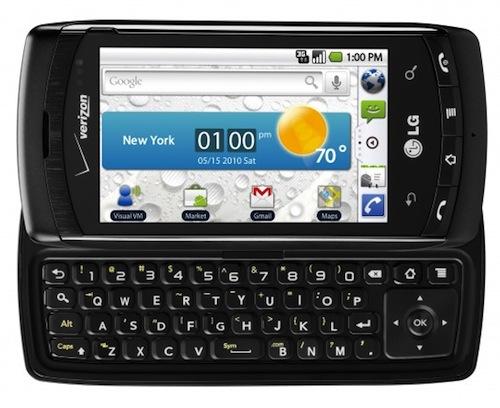
What's Good: Nice addition to Verizon's Android lineup; physical QWERTY keyboard is nice and easy to use.
What's Bad: Erratic touchscreen; laggy at times; a bit bulky.
Verdict: The LG Ally is a welcome addition to Verizon's lineup (hey, the more Android devices, the better), but given the price point, I would consider spending a bit more and getting a DROID instead.
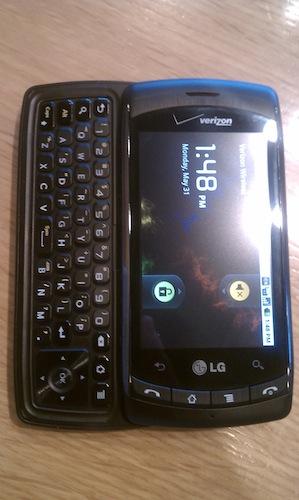
I like choice. Regardless of what device I would carry, it's nice to see that most of the carriers are embracing Android and offering devices at different price tiers, because let's face it: one device doesn't fit all. On that note, the LG Ally launches somewhere in between the mid-range Motorola Devour and high-end Motorola DROID. Between the Eris, Devour, DROID, and Incredible, does the Ally distinguish itself and hold its own?
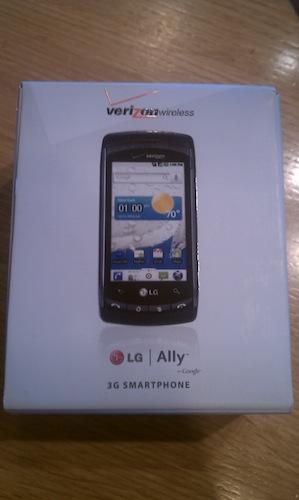
The Ally ships in a small white box similar in size to the Devour and DROID's boxes. Inside, you'll find the device, battery, an AC adapter, USB cable (which doubles as the adapter cord), and instruction manuals. Coming in at 4.56 inches long by 2.22 inches wide by 0.62 inch thick, the device weighs 5.57 ounces, making it just a bit heavier than other devices on the market. The left side of the device contains a volume rocker and microUSB charging port, while the top of the device houses the 3.5mm headphone jack. The front of the device sports the back, menu, home, and search keys, along with physical send and end keys. The microSD slot can be found on the right side of the device, along with the camera button. The camera and speaker are located on the back.
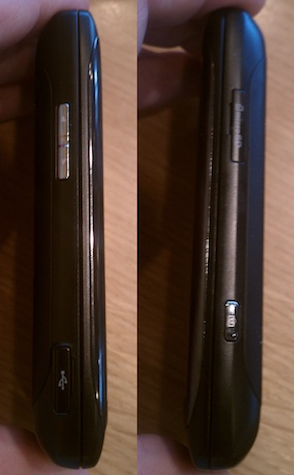
The Ally sports a 3.2-inch LCD capacitive touchscreen with 262,144 colors and 480 x 800 pixels. It's basic as far as device displays go, but it gets the job done. The Ally packs a 600 MHz CPU, and while it sailed through most things I threw at it, there were times where a lag was present. It's not a deal breaker, but coming from Snapdragon-powered handsets, the delay is noticeable.
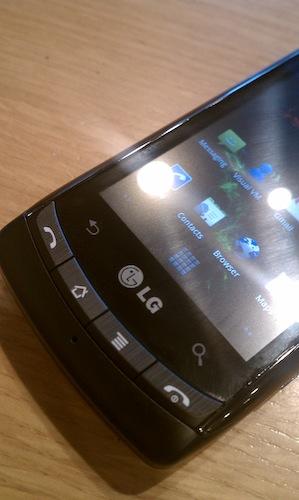
Like the Nexus One and other devices running the stock version of Android 2.1, the menu "bar" has been replaced by a menu "grid." Icons scroll up and disappear in what I like to call "Star Wars text" fashion, and circles in the bottom left and right hand sides of the screen let you know what tab you're in (similar to the iPhone). Complete with live wallpapers, the device offers a number of custom LG widgets - Alarm Clock, Dual Clock, LG Calendar, LG Socialite, and Weather, just to name a few. Verizon offers Visual Voicemail, though it will cost you an extra $1.99 monthly. LG did a great job of keeping the Ally as close to vanilla Android as possible, though small things like the dialer are distinctly LG.
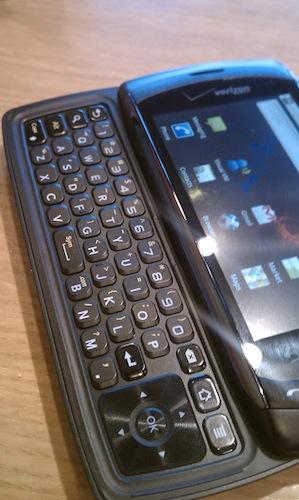
The Ally's shining feature is its keyboard. In an age where everything seems to be migrating to touchscreen-only and physical QWERTY keyboards are an afterthought, you can tell that LG spent a great deal of time developing the Ally's keyboard. Though the D-pad is in the exact same place as the DROID, I had no issues typing around it (most likely due to the curvature of the unit versus the DROID's boxy design). The keys are very tactile, and offer an audible "click." If I had to change anything, I would have added an extra row for the space bar and symbols. For those times that you don't want to slide the device open, the Ally also offers the stock Android virtual QWERTY board. Though the keyboard looks small at first glance, I was able to type without issue, thanks to the powerful auto-correction software in Android 2.1.
I found the screen to be exceptionally inconsistent. At times, it would take me two or three attempts to successfully select an application, and other times, it would operate right away (as I'm typing this, it just took me four attempts to unlock the device). Though the screen is capacitive, it had the feel of a resistive touchscreen. The lagginess itself is inconsistent as well - today, for example, I had to click "Gmail" twice to get it to register, while last week, I had no issues with opening it. It seems as if it's one to two seconds behind at all times, and over time, I found it incredibly frustrating.
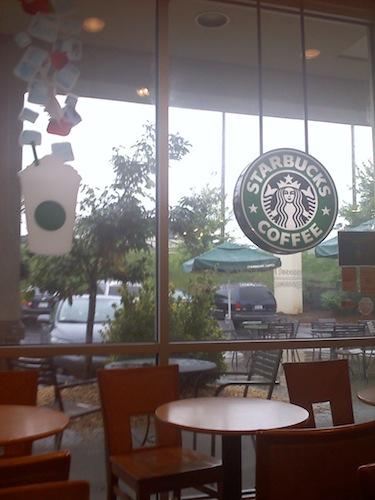
The Ally offers a 3.2-megapixel camera, and as expected, pictures paled in comparison to the 5.0 and 8.0-megapixel Android devices on the market. Colors appeared to be washed out and blurry. As a basic camera, the Ally will work fine, but for someone who's looking for a powerful camera and video recorder, the Ally isn't the device. The usual editing options are present, along with a video camcorder.
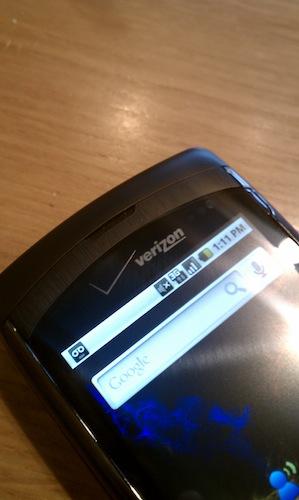
I tested the Ally in the Charlotte metro area, and throughout testing, call quality was very good. My callers were able to hear me well, and there were no volume troubles on my end. When visiting a known Verizon Wireless dead spot just outside of the area, the device performed well, despite the occasional audio dropout. When testing the speakerphone in a noisy coffee shop, I was able to hear my callers without issue. Though they noticed the loud noises around me (after all, the blenders aren't quiet), we were able to carry on a full conversation. I successfully paired two Bluetooth headsets to the device, and callers were pleased with the overall audio quality.
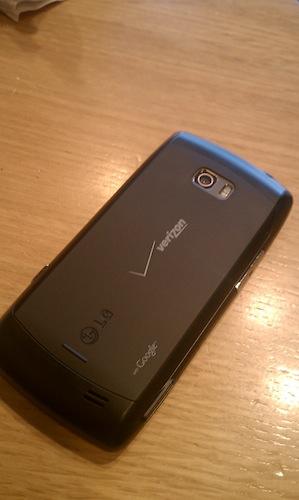
The device offers a 1500 mAh battery with a rated talk time of 7.5 hours, and roughly 21 days of standby time. In my testing, the battery life was decent, given the "always-on" nature of Android. With moderate use including calling, text messaging, browsing the internet, use of the Android Market, Google Maps, and use of several widgets, I was able to use the Ally for about a day and a half before the low battery warning flashed. For a smartphone, battery life was surprisingly decent, though I've learned to keep a car charger handy at all times.
With EVDO Rev. A capabilities, the Ally performed well in the data department. The full MSNBC webpage loaded in about 29 seconds, and the PhoneDog homepage loaded in about 34 seconds. Other data-intensive apps such as Google Maps, Google Talk, Google Voice, the Amazon MP3 store, and YouTube worked without issue. In addition to cellular data, the Ally is Wi-Fi capable, and supports 802.11b, g, and n.
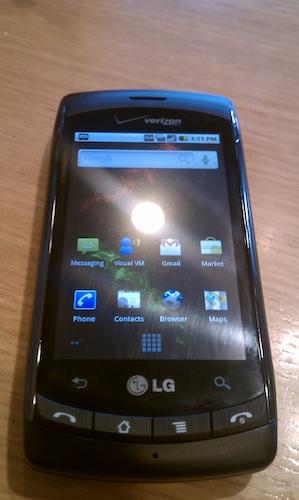
The LG Ally is a decent mid-range Android device in Verizon's portfolio, though I would have a hard time recommending it over other Android-powered devices like the DROID and the DROID Incredible. Though the keyboard is easy to use and offers a great typing experience, the lag and occasional screen issues were present enough to where I would have a challenging time using the Ally on a daily basis. Play with it in the store, but be sure to compare it to the other Android devices in Verizon's lineup.